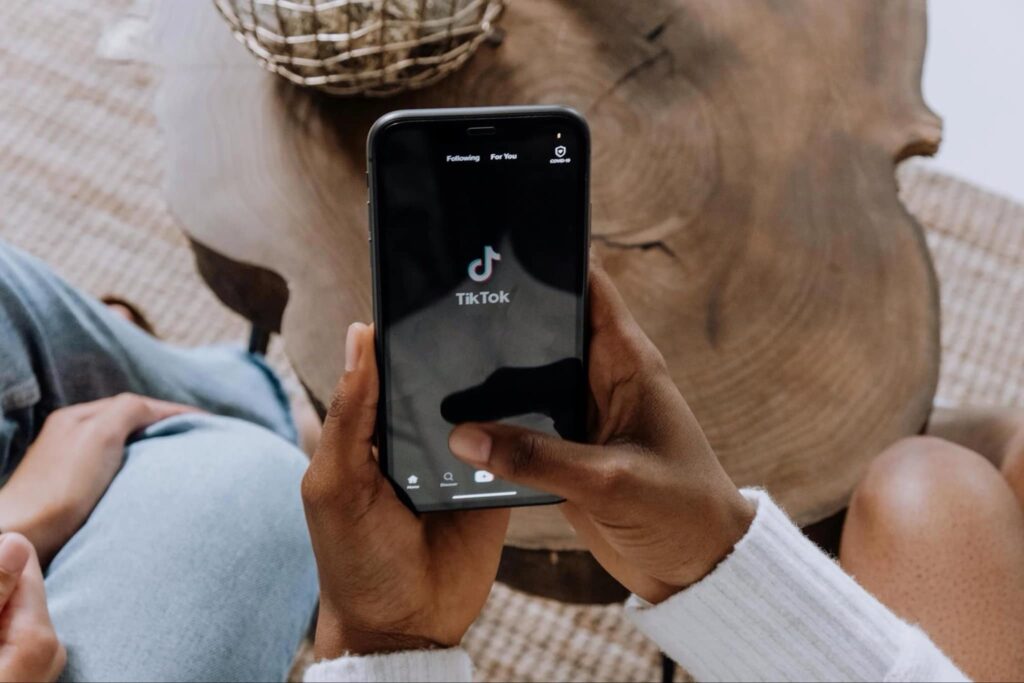
In recent years, the TikTok app emerged as more than just a platform for entertainment or dance trends. It’s been gaining popularity worldwide as a tool for information on everything from product reviews to life hacks, cooking recipes, restaurant recommendations, and even news.
A 2024 report by Adobe found that nearly 1 in 10 Gen Zers are more likely to rely on TikTok than Google as a search engine. Several factors explain why TikTok is becoming a popular search engine among younger generations, especially Gen Z. One is the format and immediacy TikTok offers. The app delivers quick, engaging content. For instance, finding a tutorial on how to cook a recipe is faster when it’s in the form of a 30-second video rather than a 1,000-word blog post. Unlike Google or other traditional search engines, where users scroll through long articles or pages of text-heavy results, TikTok presents short, digestible information through short videos.
TikTok’s algorithm is another reason it has become a powerful search tool. The platform’s algorithm is finely tuned to deliver personalized content, showing users results that align with their interests or search history. For example, someone searching for skincare tips may find a video from a dermatologist explaining the science behind certain products or another user offering advice based on personal experiences.
However, when algorithms only expose people to content they seem to benefit from, they risk being pushed into an echo chamber they never chose, where the information might be false. Despite efforts to curb misinformation, TikTok lags behind established platforms in content moderation and fact-checking.
A prominent example of this dilemma is when a user searches for health and wellness advice and follows accounts that promote trendy diets and unverified products. As the algorithm continues to surface content that aligns with the user’s engagement patterns, they could find themselves trapped in a filter bubble that glorifies extreme fasting or supplements lacking scientific evidence. This user may begin to believe these practices are accurate and safe despite the potential risks involved. From dubious mental health tips to risky diet hacks, misinformation can circulate quickly on TikTok, and the platform’s bite-sized format doesn’t encourage users to verify sources or dive deeper into complex topics.
In addition to direct searches, “incidental exposure” is a growing concern. Most of us have likely opened TikTok for a little bedtime reprieve and accidentally learned about something happening in the world from a random person. That is when incidental exposure happens—TikTok’s “For You Page” frequently presents content we didn’t explicitly search for, leading to “accidental” discoveries of information.
So, should people be worried about TikTok becoming Gen-Z’s go-to search engine?
There’s no doubt that TikTok has revolutionized how Gen Z searches for and consumes information, and this trend shows no signs of slowing down. But this doesn’t mean it’s the end for Google and other traditional search engines. While TikTok offers undeniable convenience and accessibility, its focus on virality over accuracy requires users to remain vigilant.

Most people don’t turn to social media to corroborate information. Instead, when something catches our eye—be it a catchy headline, a great visual, or a relatable story—we tend to accept it as is. Eager to show that we care and aren’t wasting time on the app, we might even share it with others. Then, we scroll on without giving it a second thought. This, my friends, is how easily misinformation spreads.
Unfortunately, I don’t have a solution to this dilemma, but a good start could be verifying information by fact-checking it elsewhere when you come across it. When sharing what you’ve learned, you should openly acknowledge that you found the data on TikTok instead of pretending you read it in an article just to avoid the embarrassment of your sources. Both users and the platform share the responsibility of navigating this evolving digital landscape, ensuring that TikTok’s rise as a search engine does not compromise accuracy, privacy, or even critical thinking.
This was written by our contributing writer, Sarah Hernaez.
Leave a Reply